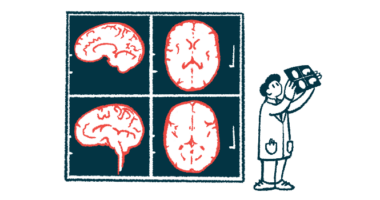Riverside Health & Rehabilitation Center Opens Parkinson’s Program

The Riverside Health & Rehabilitation Center, an affiliate of National Health Care Associates, now has a comprehensive program aimed at improving physical health and cognition for those with Parkinson’s disease.
The program, housed at Riverside’s facility in East Hartford, Connecticut, is also open for people with atypical Parkinson’s and offers an interdisciplinary approach for educating, treating and monitoring residents.
“Parkinson’s is a disease that affects many people in our community, and they need support. One in 200 people in our neighborhoods are trying to live their lives while dealing with this debilitating disease,” Michelle Hespeler, founder & chairman of the nonprofit Beat Parkinson’s Today, said in a press release.
Atypical Parkinson’s (or Parkinson-plus syndromes) is a group of conditions that have similar symptoms to Parkinson’s disease.
Beat Parkinson’s Today is a program designed to improve the quality of life of people with Parkinson’s by focusing on exercises that promote body movements used in everyday life.
“The entire community of doctors, researchers, assisted living facilities, skilled nursing facilities, and wellness programs all need to work together to support the people with Parkinson’s until a cure is found,” Hespeler said.
Residents admitted to the Parkinson’s program at Riverside are offered a comprehensive rehabilitation program that includes both physical and occupational therapy, as well as speech.
Physical therapy may focus on certain body movements, walking and functional mobility training, and daily living activities. Additionally, patients receive balance and postural training, exercises for cognition and memory, speech and communication. Changes to diet and swallow strategies are also part of the program.
The program is led by behavioral health-certified nurses who work closely with the residents to improve their well-being, to alleviate depression and reduce memory fog.
“Behavioral Health support services play a large role in a resident’s care plan, as memory fog and depression can occur,” Rosemary Beaudoin, LNHA, and administrator at Riverside, said. “Behavioral Health-certified nurse practitioners round on residents and physiatrists are on-call when needed.”
Help with managing medications is also included as patients may find it challenging to take different medicines at the right time with the right dose.
“Medication management with a Parkinson’s patient is crucial,” Ann Spenard, chief clinical officer, National Health Care Associates, said.
“Managing multiple medications can be challenging for people living with Parkinson’s but it is imperative that they take their prescribed medications on a regular dosing schedule so they can have the most effective outcomes of symptom relief. It’s especially important to remain on a schedule as the disease progresses,” she added.







